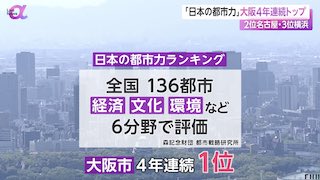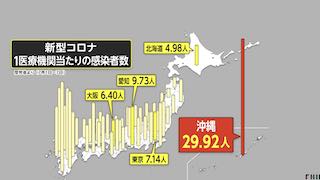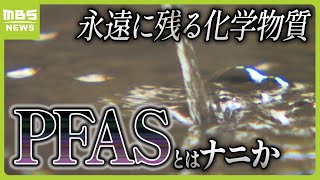Mar 06 (News On Japan) - Researchers interested in discovering new strategies potentially to improve immune function research may find it interesting to read about the Thymosin alpha-1 peptide.
Thymosin alpha-1 is a peptide fragment that may be discovered in the tissue of the thymus gland. It has been investigated for its potential in the following:
- Immune system regulation
- Cognitive and Nervous System impact
- Potential preventative action against illness and bacterial infection
Thymosin Alpha-1 Peptide: What is it?
Studies suggest that Thymosin alpha-1, also known as TA-1, is a possible immune function regulator first discovered in 1972 and isolated from the tissue of the thymus gland. This peptide comprises a chain of amino acids that is 28 parts long.
When it comes to the production of the hormone thymosin, the thymus gland, a lymphoid structure located directly in front the heart in most animal models, is responsible for the process. Over time, production starts to decrease, having reached its highest point during infancy.
The creation and maturation of T-cells are believed to be under the control of Thymosin alpha-1, which is thought to be responsible for the natural regulation of the immune system. The thymus gland is responsible for releasing T-cells into the lymphatic system. These T-cells travel to various body parts to protect against foreign pathogens and disorders. The replenishment of white blood cells is another hypothesized property of TA-1. Even though the thymus gland may have been damaged due to an accident or developmental problems, Thymosin alpha-1 is hypothesized to still offer improved immunity.
Thymosin Alpha-1 Peptide and Wounds
The lymphoid cells of the organism are considered to secrete soluble substances during the process of wound healing. These molecules attract macrophages and fibroblasts, which in turn may trigger the processes of repair, migration of endothelial cells, angiogenesis, and matrix synthesis. According to the findings of research that investigated the impact of Thymosin alpha-1 on the migration of endothelial cells, the process of angiogenesis, and the healing of wounds, the peptide was indicated to induce angiogenesis in a research model. A punch model was used to study the effects of TA-1 on wound healing, and the researchers speculated that this was the case.
A further investigation into the potential of Thymosin alpha 1 was evaluated in the reimplantation of avulsed teeth. Models were divided into two groups: one group received Thymosin alpha-1, while the other group received a placebo. The group that received TA-1 appeared to have lower levels of interferon, tumor necrosis factor α, and interleukin-6, in addition to increased levels of white blood cells, compared to the group that received a placebo. In general, the TA-1 group seemed to have exhibited several properties, including "greater periodontal healing...and a greater lifetime of the replanted teeth".
Thymosin Alpha-1 Peptide and Immunity
Researchers have speculated that diseases brought on by inadequate immune responses may be linked to significantly lower levels of TA-1 in the blood. The same group of specialists hypothesized that having low amounts of Thymosin alpha-1 in the organism might result in decreased immune function and an increased susceptibility to illness. Studies suggest that in response to Thymosin alpha-1, myeloid and dendritic cells (DC) might be agonists of thermoreceptors 9 and 2, respectively. Through its targeting of TLRs, the peptide may have the potential to enhance the adaptive immune response, which is essential for the fight against infections caused by viruses, bacteria, fungi, and other pathogens.
Additionally, TA-1 has been theorized to activate the posterior humoral immune system and increase interferon (IFN) levels, interferon-, interferon-, interleukin-2, interleukin-10, and interleukin-12. Additionally, owing to its potential to stimulate the formation of T-cell-dependent antibodies, it has been proposed as a potentially relevant compound within the context of research related to vaccine response in the immune system.
Thymosin Alpha-1 Peptide and Inflammation
Research has purported that Thymosin alpha-1 may modulate the inflammatory response, lowering reactive oxygen species formation. Studies have also indicated that this particular peptide might provide neuronal protection and decrease the overexpression of inflammatory mediators caused by CFA, such as interferon (IFN)-γ, tumor necrosis factor-α, and brain-derived neurotrophic factor.
Specifically, research carried out on rats suffering from acute liver failure indicated that concentrations of Thymosin alpha-1 may lead to an increase in the lifetime of the animals as well as a reduction in the inflammation of the liver.
Visit biotechpeptides.com for more educational articles about peptides and the highest-quality research compounds available to licensed professionals for scientific investigations. Please note that none of the substances mentioned in this article have been approved for human consumption and should, therefore, not be acquired or utilized by unlicensed individuals outside of laboratory environments.
References
[i] Thymosin alpha1. Thymosin Alpha1 – an overview | ScienceDirect Topics. (n.d.). Retrieved August 2, 2022, from sciencedirect.com
[ii] Wara, D. W., & Author Affiliations From the Department of Pediatrics. (n.d.). Thymosin activity in patients with cellular immunodeficiency: Nejm. New England Journal of Medicine.
[iii] Thymosin α1 Stimulates Endothelial Cell Migration, Angiogenesis, and Wound Healing. Katherine M. Malinda, Gurmel S. Sidhu, Krishna K. Banaudha, Jaya P. Gaddipati, Radha K. Maheshwari, Allan L. Goldstein, Hynda K. Kleinman. The Journal of Immunology January 15, 1998, 160 (2) 1001-1006;
[iv] Loo, W. T. Y., Dou, Y. D., Chou, W. K. J., & Wang, M. (2008, June 3). Thymosin alpha 1 provides short[1]term and long-term benefits in the reimplantation of Avulsed Teeth: A double-blind randomized control pilot study. The American Journal of Emergency Medicine. Retrieved July 26, 2022, from https://www.sciencedirect.com/science/article/abs/pii/S0735675707005992
[v] Pica F, Gaziano R, Casalinuovo IA, et al. Serum thymosin alpha 1 levels in normal and pathological conditions. Expert Opin Biol Ther. 2018;18(sup1):13-21. doi:10.1080/14712598.2018.1474197
[vi] Romani L, Bistoni F, Gaziano R, Bozza S, Montagnoli C, Perruccio K, Pitzurra L, Bellocchio S, Velardi A, Rasi G, Di Francesco P, Garaci E. thymosin alpha-1 activates dendritic cells for antifungal Th1 resistance through toll-like receptor signaling. Blood. 2004;103:4232–4239
[vii] Naylor PH, Quadrini K, Garaci E, Rasi G, Hadden JW. Immunopharmacology of thymosin alpha1 and cytokine synergy. Ann N Y Acad Sci. 2007;1112:235– 244
[viii] Kharazmi-Khorassani J, Asoodeh A. Thymosin alpha-1; a natural peptide inhibits cellular proliferation, cell migration, the level of reactive oxygen species and promotes the activity of antioxidant enzymes in human lung epithelial adenocarcinoma cell line (A549). Environ Toxicol. 2019;34(8):941-949. doi:10.1002/tox.22765















